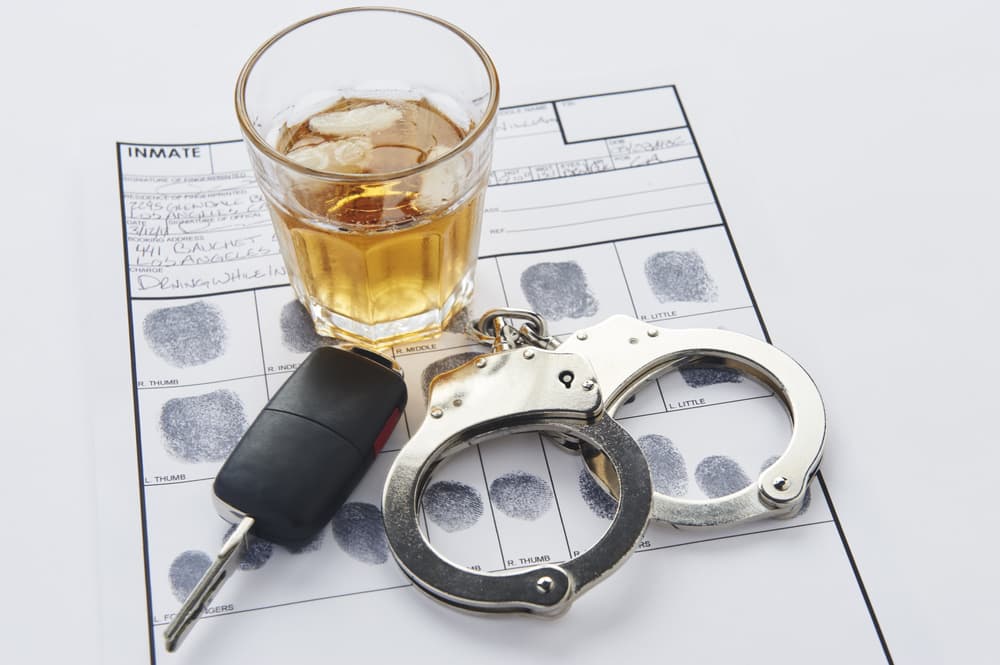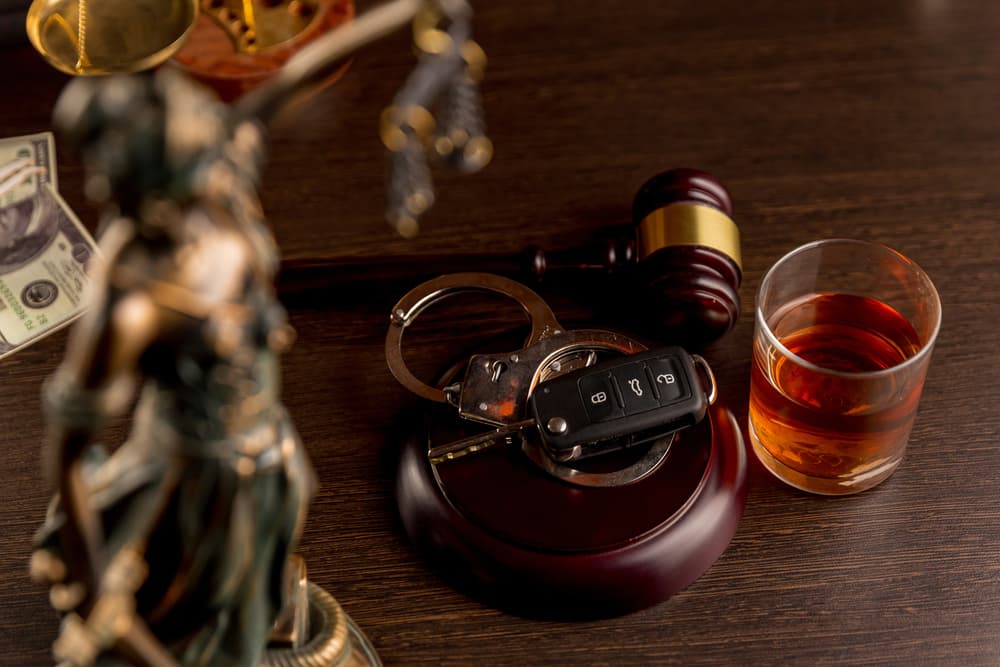A DUI charge can be difficult to overcome, but you have options and rights to help you in this challenging situation. In this post, we’ll discuss strategies and steps you can take to address a DUI charge effectively. A experienced Cleveland DUI defense attorney may also help.
Understanding DUI Charges
A DUI (Driving Under the Influence) charge typically involves operating a vehicle while impaired by alcohol or drugs. Each state has specific laws defining DUI and its consequences, including fines, license suspension, and jail time.
Know Your Rights if You’re Pulled Over
It’s important to understand your rights if you’re pulled over. You have the right to remain silent and the right to an attorney. Exercising these rights can help you protect yourself during a DUI stop.
The Right to Remain Silent
One of your most fundamental rights during a DUI stop is the right to remain silent. This right is protected under the Fifth Amendment of the U.S. Constitution, which guards against self-incrimination. When you’re pulled over, you are required to provide basic identification information, such as your name, driver’s license, registration, and proof of insurance. Beyond this, you are not obligated to answer any further questions about where you have been, whether you have been drinking, or any other inquiries related to the DUI stop.
Exercising your right to remain silent is important because anything you say can be used against you in court. People often think they can talk their way out of a DUI stop, but this is rarely the case. It’s usually better to politely decline to answer further questions without legal counsel present.
The Right to an Attorney
Another right is the right to an attorney. This right is part of the Sixth Amendment, which ensures the right to legal representation in criminal prosecutions. Once you request an attorney, the police should stop questioning until your attorney is present. It’s important to clearly state that you wish to speak with an attorney. This is not a time to be ambiguous – a clear request for legal representation is necessary to invoke this right.
The Role of Evidence in DUI Cases

In DUI cases, evidence is the cornerstone of both the prosecution’s case and your defense. Understanding the types of evidence commonly used in DUI cases, how they are collected, and their potential flaws can significantly impact the development of a strong defense strategy.
One of the primary pieces of evidence in DUI cases is the result of a breathalyzer test. These devices are designed to measure the alcohol concentration in your breath, which is then used to estimate the alcohol level in your blood.
However, breathalyzer tests are not perfect. They must be calibrated and maintained regularly to ensure accurate readings. External factors, such as certain medications or even diet, can sometimes affect the results.
The way the test is administered can also impact its accuracy. If the officer administering the test does not follow the proper protocol, the results may be contested. An experienced DUI attorney can scrutinize these aspects to challenge the reliability of the breathalyzer results in your case.
Field sobriety tests are another common form of evidence. These tests usually involve a series of physical tasks to assess a person’s balance, coordination, and ability to follow instructions. These include the horizontal gaze nystagmus test, the walk-and-turn test, and the one-leg stand test.
The subjective nature of these tests is an important point. Performance on these tests can be influenced by various factors unrelated to alcohol consumption, such as nervousness, physical impairments, weather conditions, and even the type of footwear the person is wearing. Additionally, the officer’s interpretation of the results can be subjective. The inherent subjectivity of these tests provides a potential avenue for challenging their validity in a DUI case.
Officer observations are also a key part of the evidence in a DUI case. These observations can include the driver’s behavior, appearance, and performance during field sobriety tests. Officers often look for signs of impairment, such as slurred speech, bloodshot eyes, the smell of alcohol, and erratic driving behavior.
However, many of these signs can have explanations unrelated to alcohol or drug impairment. For example, bloodshot eyes can result from fatigue, allergies, or irritation, and nervousness can affect a person’s behavior and speech. Therefore, while important, these observations are not definitive indicators of impairment and can be challenged based on alternative explanations.
In building a defense in a DUI case, it’s important to carefully examine all the evidence. This involves looking at how the evidence was collected, whether proper procedures were followed, and considering all possible factors that can affect the accuracy of the evidence. A skilled attorney can identify weaknesses and inconsistencies in the evidence and use this knowledge to challenge the prosecution’s case.
Steps to Take After a DUI Charge
Being charged with a DUI can be a stressful and confusing experience. However, there are specific steps you can take to address the charge effectively. These steps are aimed at ensuring your rights are protected and that you have the best possible chance of a favorable outcome.
Hire an Experienced DUI Attorney
The first and perhaps most important step after a DUI charge is hiring an experienced attorney. This is someone who handles DUI cases and is familiar with DUI law.
Review the Traffic Stop and Arrest
Your attorney will begin by thoroughly reviewing the circumstances surrounding your traffic stop and arrest. This review forms the foundation of your defense. They will scrutinize whether proper legal procedures were followed during the stop and arrest. Questions such as, was there a legitimate reason for the traffic stop? Were your rights respected during the stop and arrest? This examination can reveal if there were any procedural errors or violations of your rights, which can significantly impact the outcome of your case.
Evaluate the Breathalyzer Test
The reliability of the breathalyzer test administered during your DUI stop is another key aspect your attorney will evaluate. Breathalyzer tests can sometimes provide inaccurate results due to factors such as improper calibration, incorrect administration, or even specific health conditions that might affect the test’s accuracy. Your attorney will investigate these factors and may question the reliability of the breathalyzer test in your case. If the test is found to be flawed or improperly administered, this can play a role in your defense.
Consider Field Sobriety Tests
Field sobriety tests are commonly used by law enforcement to assess impairment. However, these tests are not always a reliable indicator of a driver’s impairment due to their subjective nature. Factors such as nervousness, physical conditions, weather, and even the testing environment can affect the results. If you have a physical condition or if there are external factors that can have influenced your performance on these tests, your attorney will take this into account. Challenging the validity and interpretation of field sobriety tests can be a part of your defense strategy.
Examine Officer Observations
Finally, the officer’s observations during the DUI stop are a critical piece of evidence. This includes their observations of your behavior, physical appearance, and performance on field sobriety tests. While such observations are important, they are also subjective and can be open to interpretation. Your attorney will carefully examine these observations and may offer alternative explanations for them. For instance, symptoms attributed to alcohol impairment can also be explained by fatigue, illness, or stress.
Legal Defenses in DUI Cases

When facing a DUI charge, there are several legal defenses that can be employed to challenge the charge. These defenses revolve around questioning the legality and reliability of the evidence against you. A skilled attorney can use these defenses, ensuring that every aspect of your case is thoroughly examined and challenged where appropriate.
Challenging the Traffic Stop
One of the primary defenses in a DUI case involves challenging the legality of the initial traffic stop. This defense is based on the Fourth Amendment, which protects against unreasonable searches and seizures.
If the traffic stop was not conducted legally, meaning there was no probable cause or reasonable suspicion for the stop, then the evidence obtained during the stop may be inadmissible in court. For example, if you were stopped without any valid reason, such as a traffic violation or observable signs of impairment, your attorney can argue that the stop was unjustified. This challenge can be a powerful tool, as any evidence gathered during an illegal stop, including breathalyzer test results and field sobriety test performance, may be excluded from consideration in your case.
Questioning Breathalyzer Accuracy
Another common defense is questioning the accuracy or administration of the breathalyzer test. Breathalyzer devices need to be calibrated and maintained properly to ensure accurate readings. Your attorney will investigate if the device used in your case was calibrated correctly and whether the test was administered properly. Factors such as the time between drinking and testing, as well as any potential interference (like mouth alcohol, regurgitation, or use of certain mouthwashes), can also impact the test’s accuracy. If your attorney can demonstrate that the breathalyzer test in your case was flawed or inaccurate, this can significantly weaken the prosecution’s case against you.
Disputing Field Sobriety Test Results
Field sobriety tests are another area that can be challenged. These tests, which often include activities like walking in a straight line or standing on one leg, are designed to assess impairment. However, they are highly subjective and can be influenced by many factors unrelated to alcohol consumption. Conditions such as nervousness, fatigue, physical impairments, and even poor weather can affect your performance on these tests. Your attorney can argue that these external factors, rather than alcohol impairment, led to your performance on the tests, thus challenging their reliability as evidence of DUI.
Medical and Health Considerations
Certain medical conditions can mimic the signs of impairment or affect the results of sobriety tests. For instance, conditions like diabetes, neurological disorders, or even injuries can impact your balance, speech, and eye movements. This can lead to a misinterpretation of these signs as being alcohol-related. Your attorney can present medical evidence or expert testimony to explain how your health condition might have influenced the DUI charge. This defense is particularly compelling if it can be shown that the symptoms you exhibited were consistent with your medical condition rather than alcohol or drug impairment.
Improper Police Procedure
Finally, any deviation from standard legal procedures during your arrest and evidence collection can also be a basis for defense. This includes ensuring your Miranda rights were read at the appropriate time and verifying that all evidence was collected and handled in accordance with the law. If the police fail to follow proper procedure, this can result in evidence being thrown out or the case being dismissed. For instance, if the police fail to inform you of your rights or improperly administer field sobriety tests, these issues can be used to challenge the validity of the prosecution’s case.
Alternative Resolutions and Plea Bargains
Dealing with a DUI charge doesn’t always mean going to trial. Sometimes, alternative resolutions, including plea bargains, offer a more favorable path. A plea bargain is a legal agreement where you agree to plead guilty to a lesser charge in exchange for reduced penalties. This decision is strategic and depends heavily on the specifics of your case.
When considering a plea bargain, your attorney will assess the strength of the prosecution’s case against you. If there are strong pieces of evidence that make a conviction likely, your attorney might recommend a plea bargain as a way to avoid harsher penalties associated with a DUI conviction. For example, instead of facing the consequences of a DUI conviction, which might include significant fines, license suspension, or even jail time, you might plead guilty to a lesser offense like reckless driving, which typically carries milder penalties.
However, plea bargains are not always the best route. Your attorney will weigh factors like the impact on your criminal record, future employment, and insurance rates. They’ll also consider the likelihood of winning at trial. The decision to accept a plea bargain is a personal one and should be made after careful discussion with your attorney, who can provide insight into the implications of such a decision.
Preparing for Court
If your case does go to court, preparation is key. Your attorney will guide you through each stage of the court process, from arraignment to trial. The arraignment is your first appearance in court, where you’ll be formally charged and asked to enter a plea. Your attorney will advise you on the best plea to enter based on their analysis of your case.
After the arraignment, there may be several pre-trial hearings. These hearings are opportunities for your attorney to negotiate with the prosecutor, file motions (such as to suppress evidence), and prepare your defense strategy. Your attorney will work to gather evidence, possibly including witness statements, video footage, and expert testimony, to build a strong defense.
If your case proceeds to trial, your attorney will represent you in court, presenting your defense and challenging the prosecution’s evidence. They’ll cross-examine witnesses, object to improper evidence, and argue legal points. Your role is to provide any necessary information to your attorney and, if advisable, to testify on your own behalf.
Contact a DUI Lawyer for Information About Your Defense

Facing a DUI charge can be overwhelming, but with the right approach and legal support, you can effectively handle this challenge. However, every case is unique, so it’s important to consult with a knowledgeable criminal defense lawyer who can advise you based on the specifics of your situation.


